Sampsel Memories |
By Lois Owen Ream |
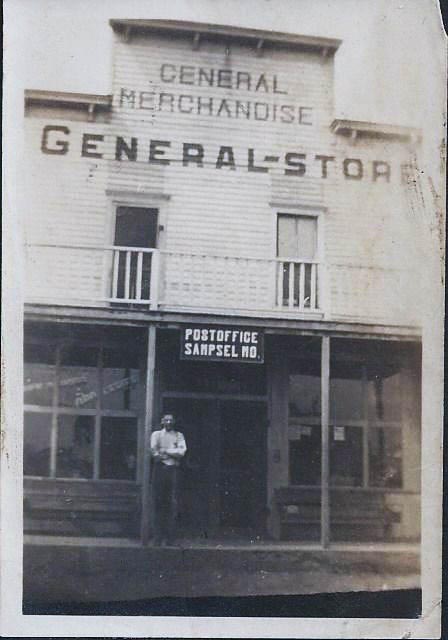
|
|
|
|
|
| Memories of Sampsel have stayed pretty fresh in my mind as we moved there from Arkansas when I was about five years old. Mother and Dad (Bernie and Wilkie Owen), owned a small acreage, with house, just back of the Wabash depot in Sampsel and they rented that house to various people while we lived in Arkansas. Dad had rebuilt that house in 1924 by adding on to a smaller house that was on the property when he and Mother bought it from Mr. Albert Holman (Betty Walker's grandfather) around 1914. Much of the material used for the add-on was from a pool hall that used to stand across the tracks in Sampsel. Dad had it moved over to his property and started to work on the house that I remember. |
Questions arose for me, years later, as to why the folks bought in a flood plain. My only answer was that Grandmother Wilson, who lived just north of Sampsel, did not like Mother being in Arkansas; she wanted her as close as possible. (Dad had taken Mom to Arkansas to live after they were first married.) So, here was an acreage on the edge of Sampsel, available, and there was nothing more for my mother and dad to do but buy it and move back to Missouri. The house was small so adding on to it seemed the thing to do with their growing family. No sooner had Dad finished the remodeling job than he and Mom moved back to Arkansas where they first started out. Dad had a mail route out of Conway, Arkansas and his brother was the postmaster. I was born there in 1931. |
Their family history holds sad times and difficult times that played a big part in their decisions. In that interim of time they lost three children which left the whole family in a state of shock. After moving back to the farm in 1936 they stayed there until their deaths. Dad was a dreamer of sorts, and continued to search that dream for a better place to live -- out of the flood plain. |
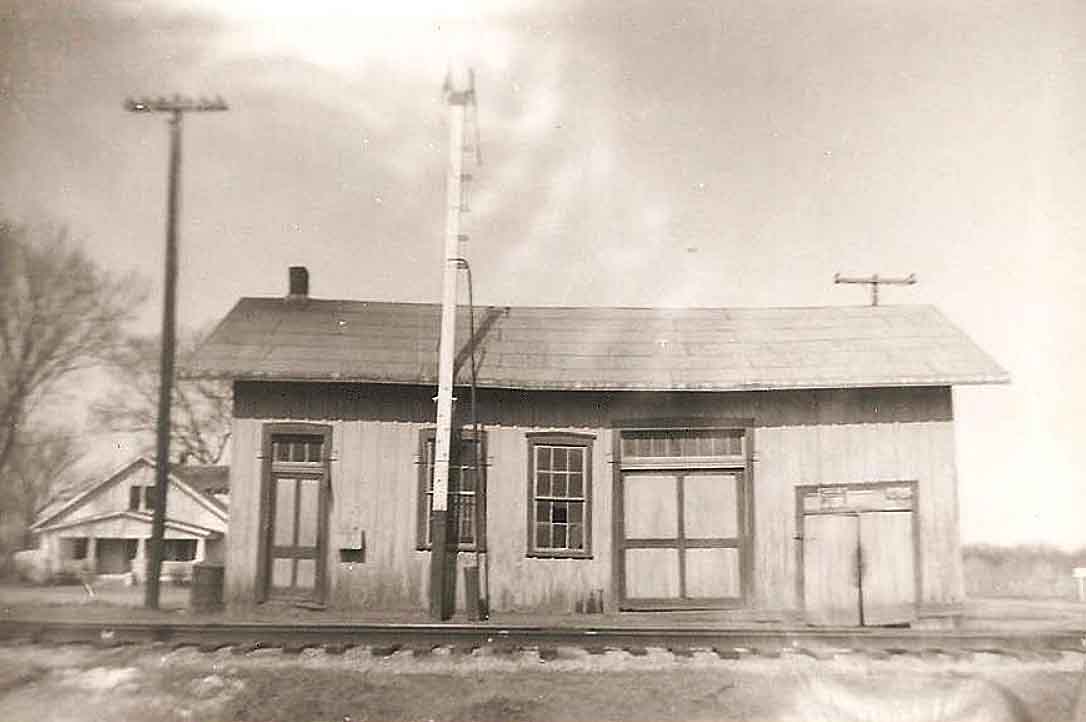
The home of Wilkie M. Owen and family is in the background. |
|
The sounds of Sampsel that linger with me are easily brought to mind. I hear
a Redwing Blackbird and I recall the tall cottonwood trees by the old high
school building full of those birds every fall.
They seemed to be thick on the branches and their song rang out over the
whole town. I walked to school, cutting across between the Allnutt house and the
old high school building, so it was hard to ignore them. |
|
The old steam locomotives on the Wabash Railroad that ran through the whole
northeast edge of Sampsel always sounded so lonely in the dead of night. I loved
the sound of those trains and still thrill to the sights and sounds of steam locomotives when I can find one chugging
along on a special excursion. |
Charley Walker picked up the outgoing mail from the post office, across the road from the Wabash depot, and wheeled it over to the depot in a two-wheeled cart to dispatch out on one of the late night trains. One train went west to Omaha, another went east to St. Louis in the wee hours of the night. Those trains dropped bags of mail for the Sampsel post office and Charley would pick that up and wheel it to the store building to deposit in a drop box for the post office housed in the general store. Carriers would deliver this mail on their outgoing routes. Local mail was sorted and put into letter boxes for the residents of Sampsel. Our box was number 44. It was a combination box and I could recall the combination for several years, but now there seem to be more important things to recall! |
Then we don't want to forget the smells of Sampsel. . .the winter smell of coal and wood burning in the stoves and ranges of each home. All of the garages smelled of motor oil and gasoline. The blacksmith shop had a fragrance all its own. Coals, heated to extreme temperatures on a forge that would heat a piece of steel and ready it for the strike of the smithy's hammer. Nemo Roberts was the smithy and blacksmithing was his love. He worked as a section hand for the Wabash Railroad during the day and plied his blacksmithing skills on evenings and weekends. |
Spring brought gardening and the sweet smell of freshly turned soil being readied for the family garden. Onion sets and lettuce seed packets guaranteed that summer was out there somewhere. With summer came the hay season. . .hot days. . .thirst and sore muscles accompanied the hard work in the fields. Was a guy job, for sure! |
By the time fall came, men were found cutting firewood for the family heating stove. Dad cut lots of wood along Lake Creek. He worked hard at that job. I watched him notch a tree, put the saw to the trunk and step back to watch it fall. He would trim the branches and cut the trunk into lengths he could haul to his home in Sampsel. He would then hire someone to come and saw it into firewood that he corded along the fence behind the garage. |
| Winter was a time for ice skating and sledding. Young people never minded the cold or the thoughts of frostbite. My first shoe skates were a gift to me from my Uncle Drury Wilson. Before that it was clamp-on skates that caused my ankles to be sore most all winter. We skated on Lake Creek, south of Sampsel, and sometimes on a lake at Cooley Gravel, east of Sampsel. |
Christmas was special as Dad and I would go up to Leo Thompson's place and cut a cedar tree. They were sticky trees and decorating one could be very challenging. But it was such a wonderful time that one hardly noticed. We had an electric train that went around the base of the tree and along with the old glass ornaments, icicles and the one string of lights it made a delightful Christmas tree. |
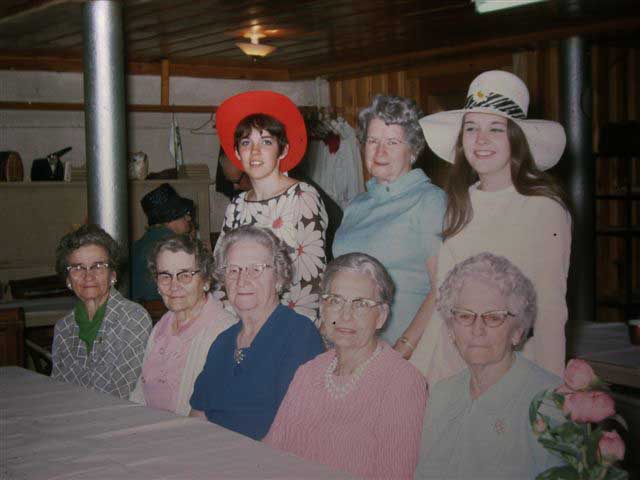 |
Women and Girls of the Sampsel Community |
| Front row l-r: Mrs. Ed (Clyta Nothnagle) Raulie, Mrs. Oscar (Clara Nothnagle) Minnick, Mrs. Jeff (Celia Johnson) Walker, Mrs. Harry (Nellie Roberts) Walker, Mrs. Dan (Rose Wilson) Walker. |
Back row l-r: Cynthia Ream (daughter of Dale and Lois Ream), Mrs. Ed (Naomi Sexsmith) Lay, Claudia Ream (daughter of Dale and Lois) Ream. |
This picture was taken in May 1970 at the Mt. Olive Methodist Church in Sampsel Township. |
| New Years Eve was celebrated with parties in relative's homes. One year, Uncle Russell and Aunt Peggy Wilson had the party. They served oyster soup to the gang of friends and relatives that gathered. After soup, celery and olives, we all went off to play cards or parlor games. I was introduced to "Spin the Bottle. " Have to admit, there were very few of us young ones to play that game and kissing someone less than desirable was a task! Besides, there were not enough older girls and guys who needed kissing, and who wanted to kiss a kid? |
| Happy days. . .those were in Sampsel, Missouri USA a long time ago. |
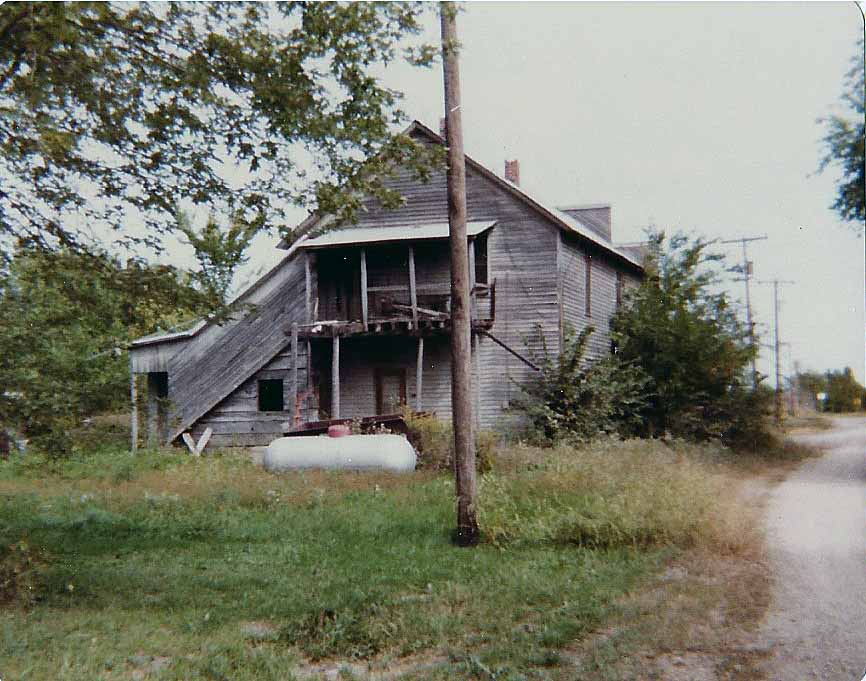
Sampsel Bank Building
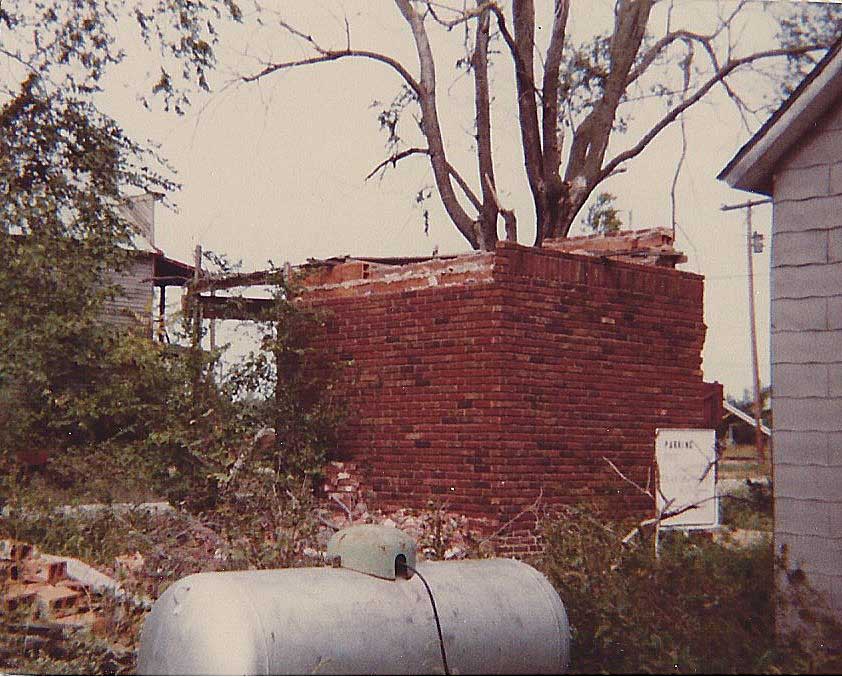
Bill Trammel's House - Back
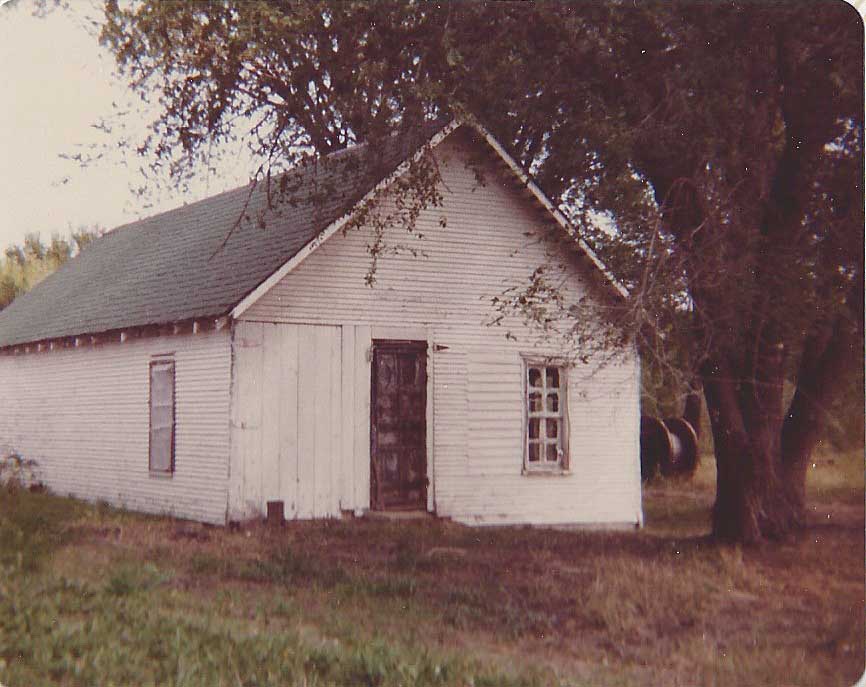
Billy Dick Walker's House
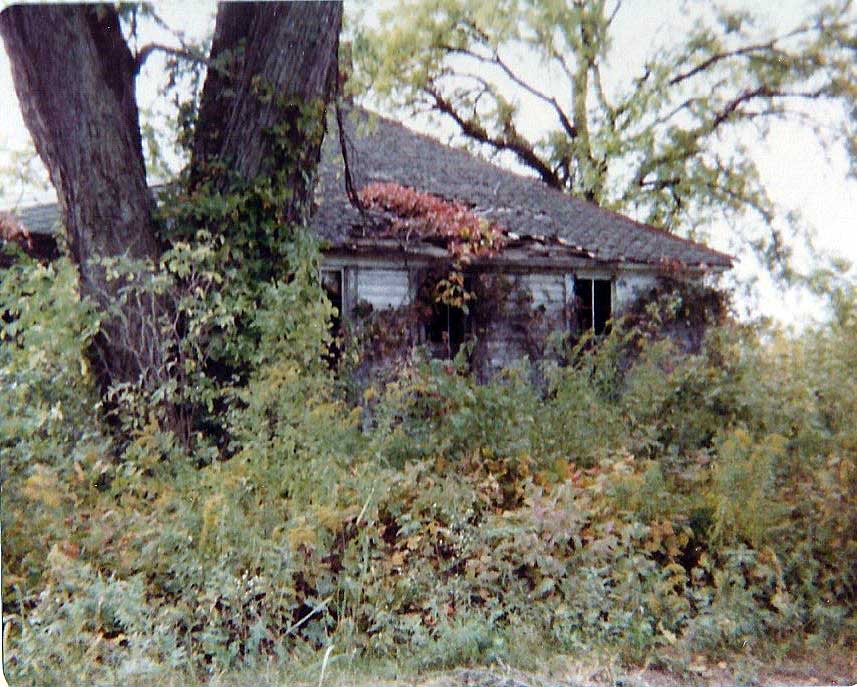
Former Grade School in Sampsel
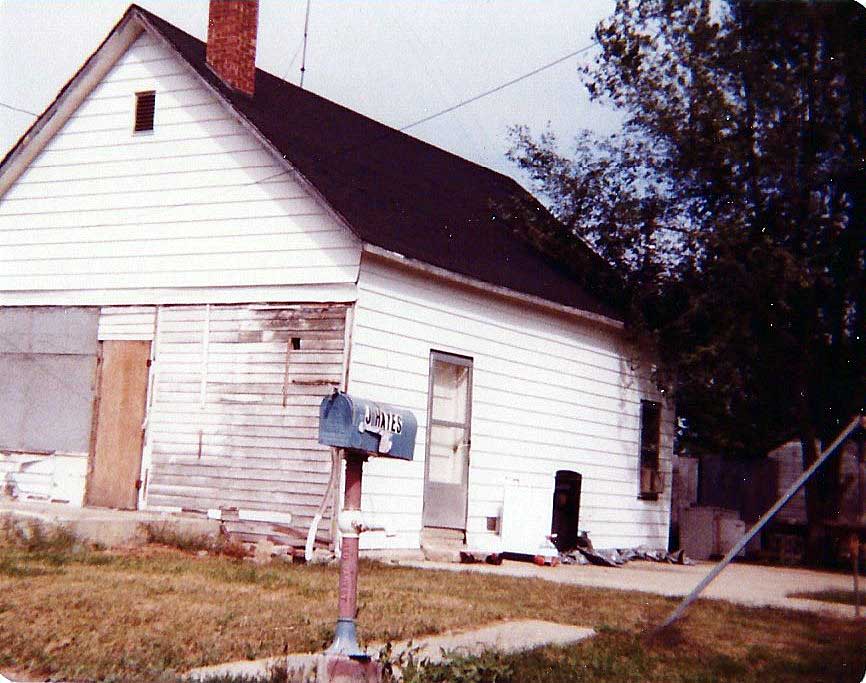
Frances Keith's House
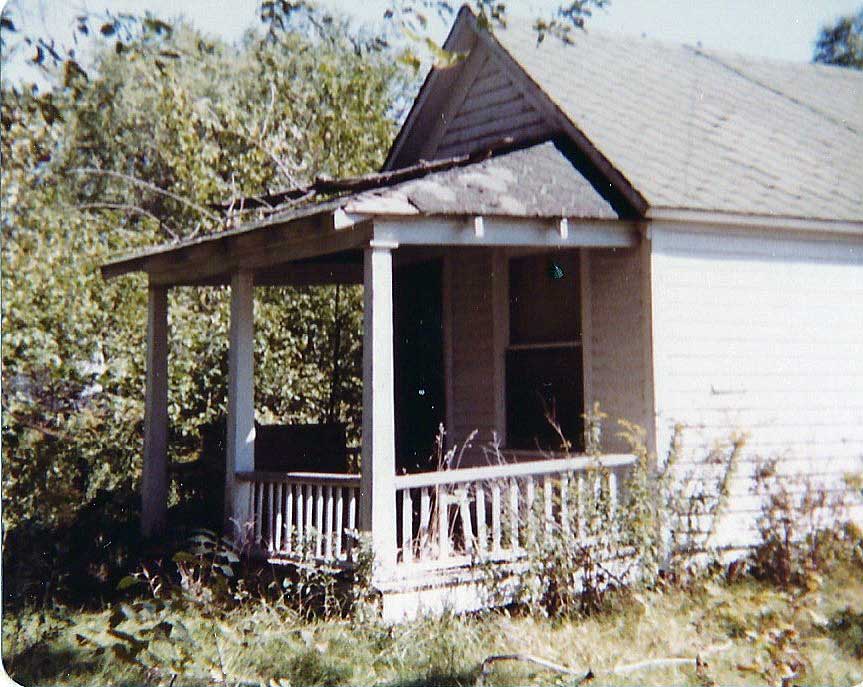
The Sampsel home of Everett "Nemo" Roberts and family
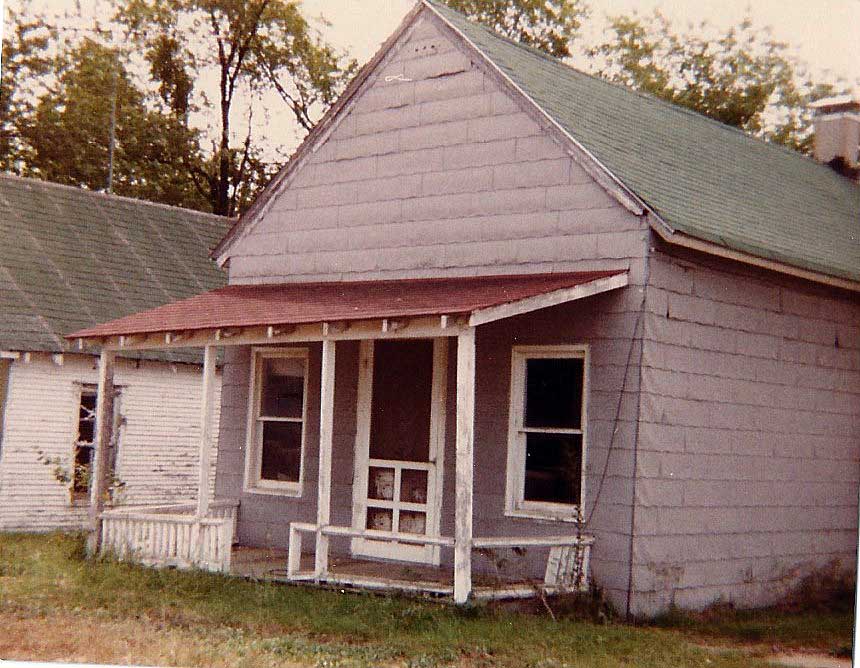
Nemo Roberts' Blacksmith Shop
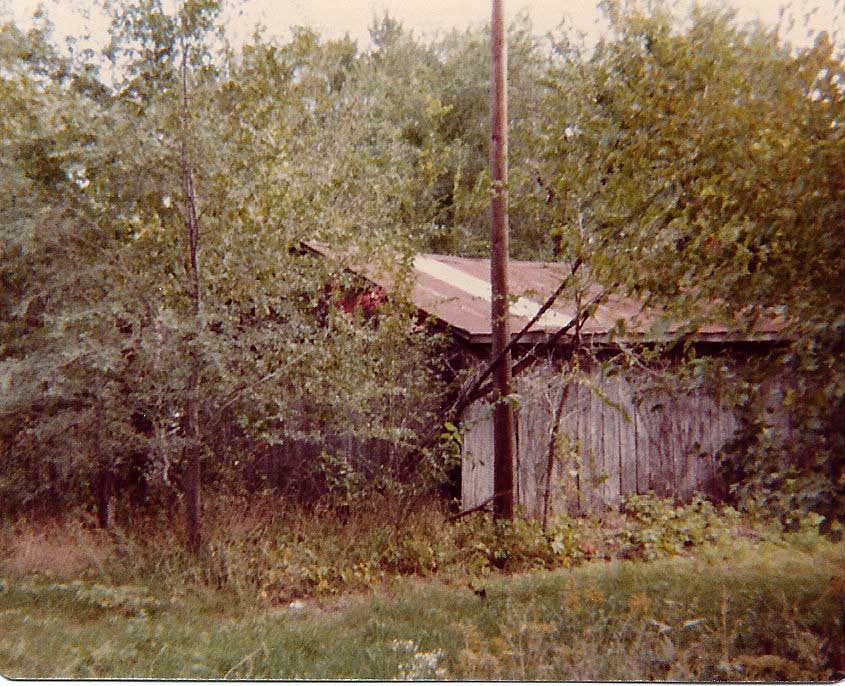
Indian Creek -- All Dried Up
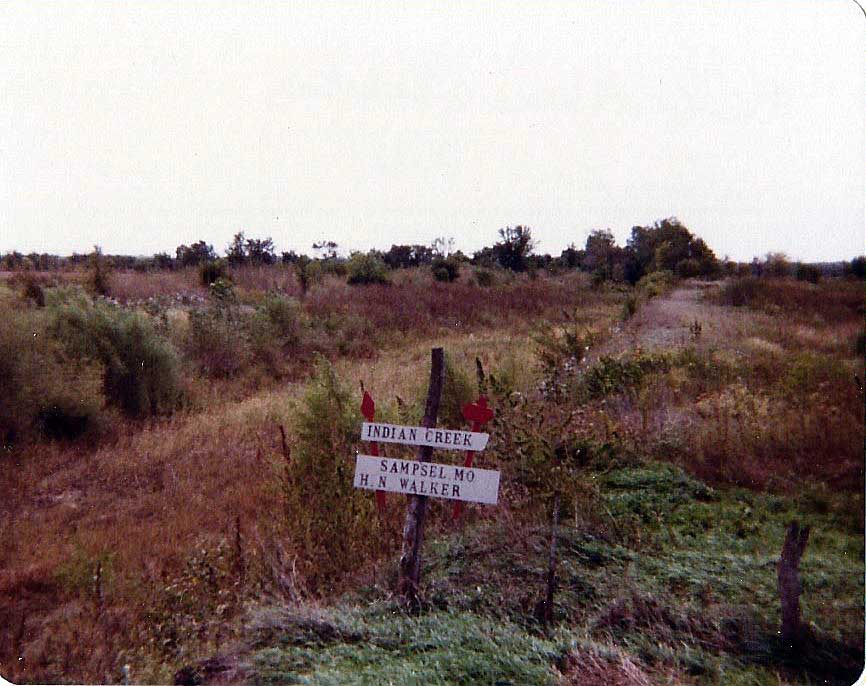
Lake Creek -- All Dried Up
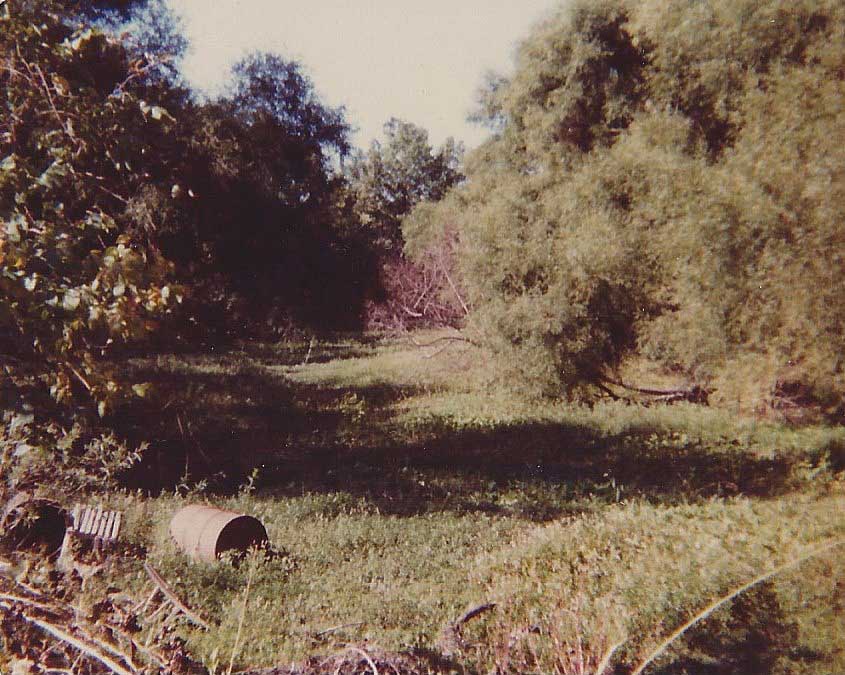
Linda and Gary Whorton at Roberts' House on Lake Creek
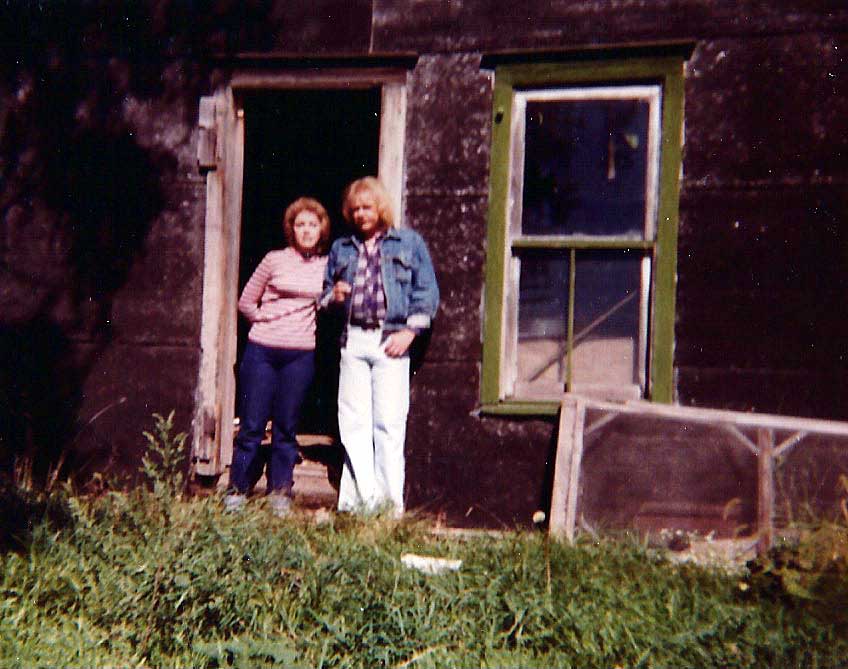
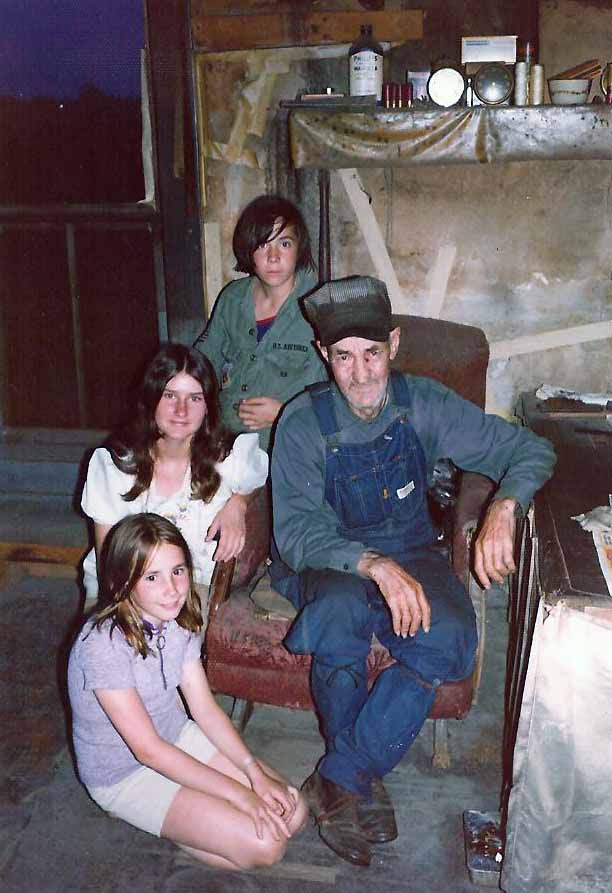
The boy in the back is Arvan Reese III. His grandfather, Arvan Reese Sr., lived in Chillicothe. Grandfather married Ruth Reese and they had five children. Patty Jo Reece, Arvan Reese Jr., Garst Reese, James Robert Reese and Ruthann Reese. The elder Mr. Reese was also known as Colonel Reese because of his service in the U. S. Army during World War II. Colonel Reese made friends with Mr. Roberts. |
|
The girl in the middle is Cheri Jo, a daughter of Patti Jo. Cheri now (2017) lives in Chillicothe with her husband Ed. |
|
The girl sitting on the floor is Arvin III's sister Kathryn. She lives in Idaho where she is a pediatrician. |
|
Orval Roberts had a lot of dogs. They slept on the bed with him. It was an old metal bed with a feather mattress. During a visit with Mr. Roberts in 1976 he told us about how Lake Creek had flooded that Spring. He showed us a flood line on the wall of his house that was about four feet up. Another flood line, more faint, was about six feet up. That happened when the creek flooded in his childhood. During both floods, he took everything to the upper floor -- furniture, dogs and food. Mr. Roberts would join my father and grandfather in whichever spirits they brought along for the visit. I saw that house in the late 1980s. Mr. Roberts was gone, and there wasn't much left of the house, either. I liked him, liked the dogs and I miss that connection to the land of my father and grandfather. -- Arvan Reese III. |
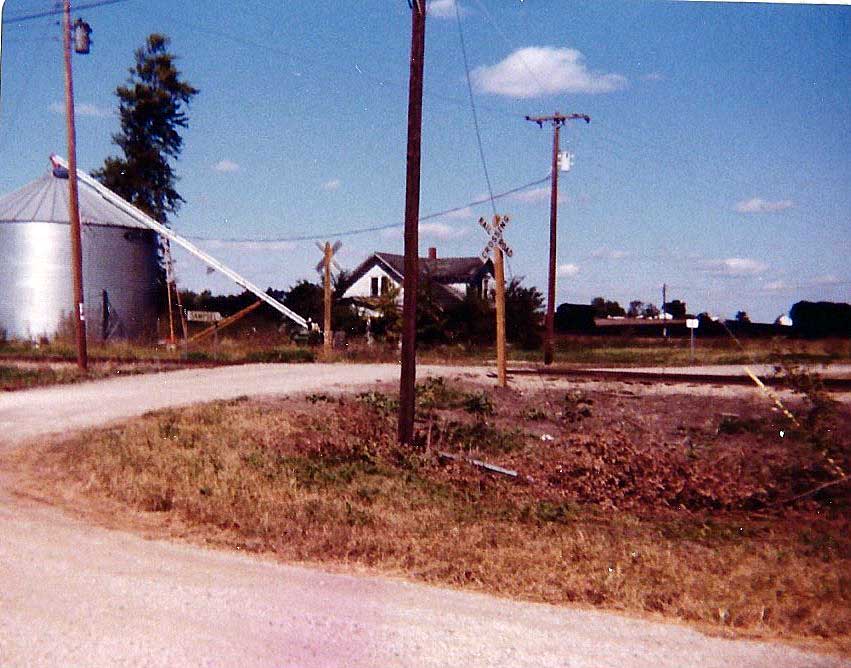
Railroad Tracks -- First Trestle
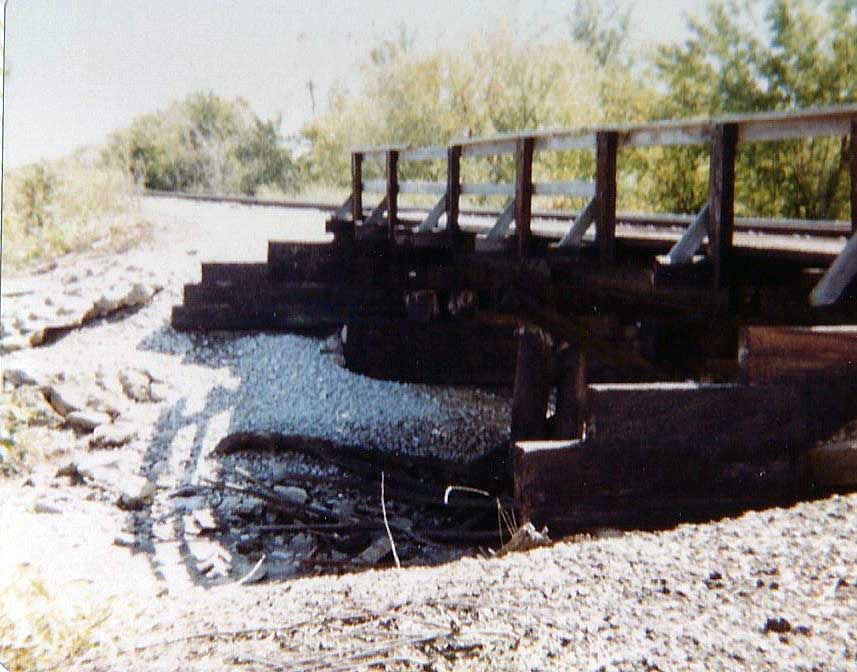
Railroad Tracks -- Second Trestle
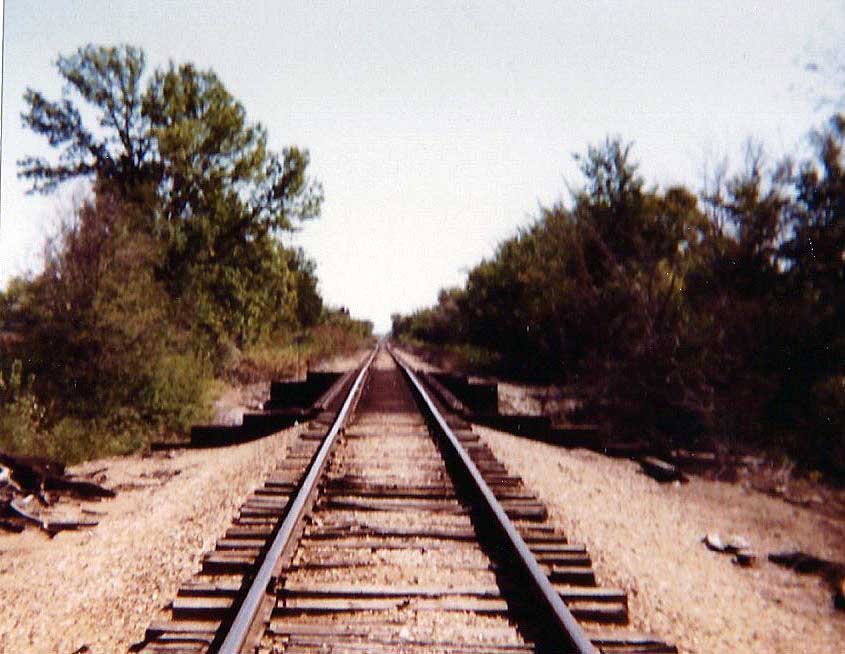
Orval Roberts House on Lake Creek
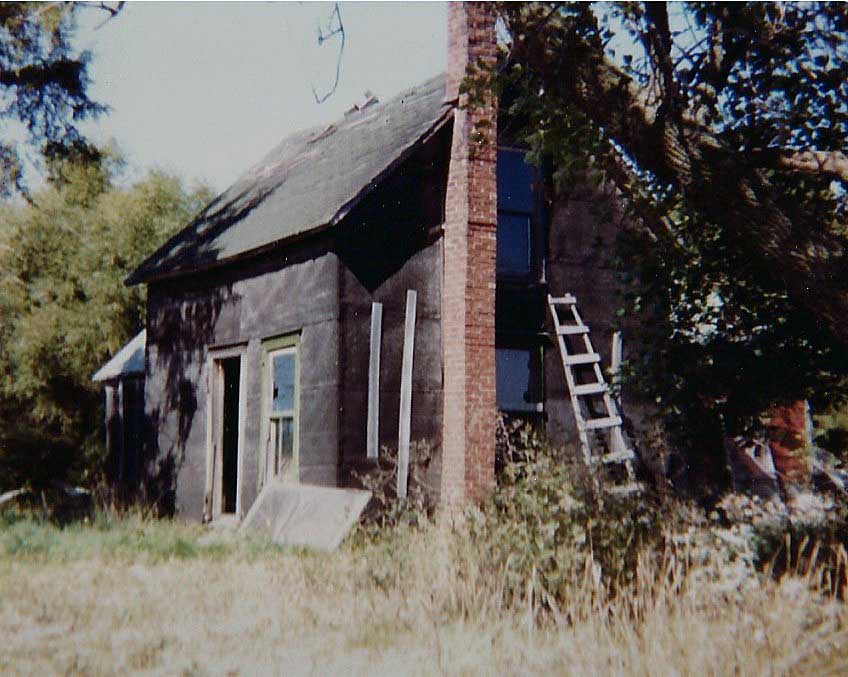
Orval Roberts House on Lake Creek
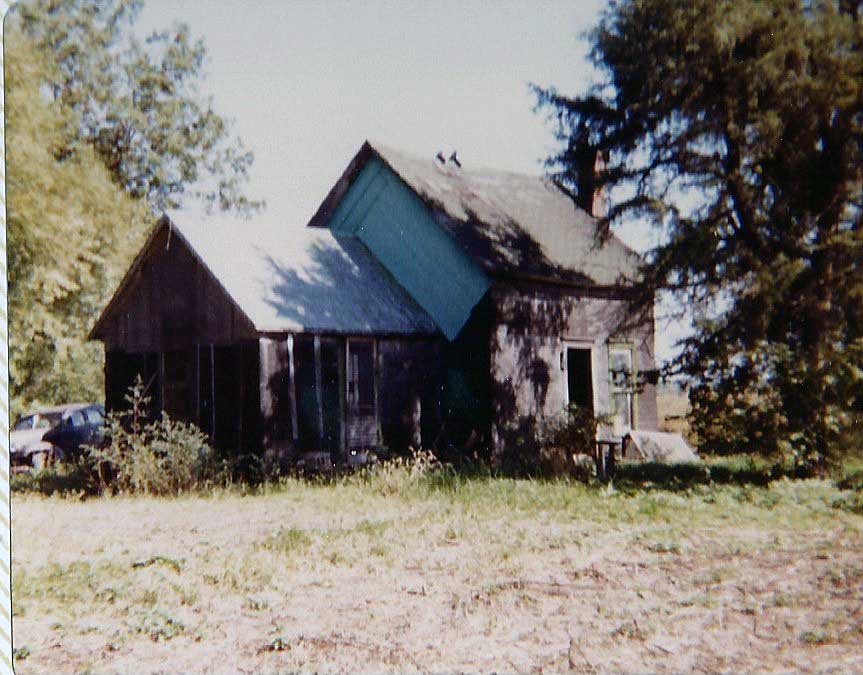
Sampsel Railroad Sign
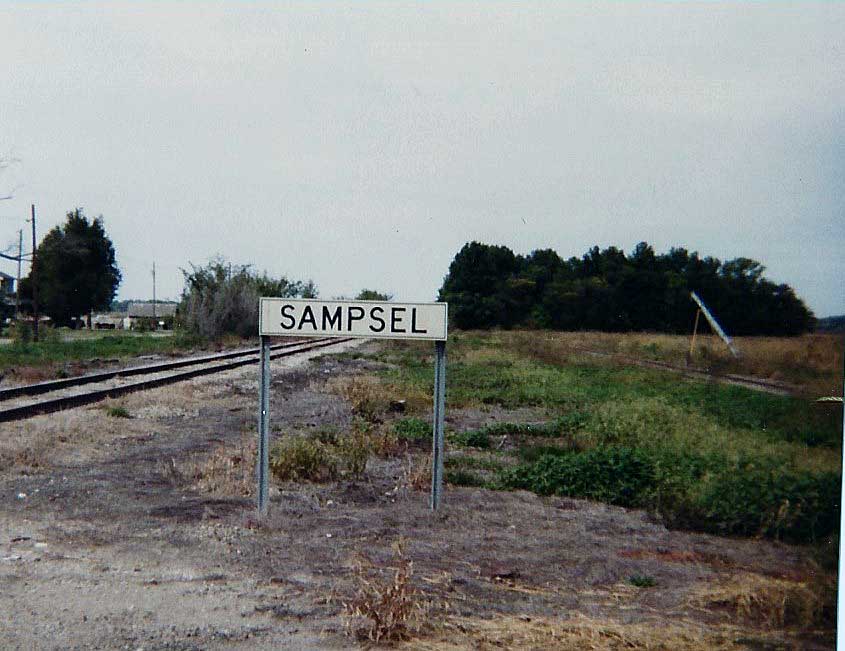
|
This poem was written by my great Aunt Pauline "Bird" Shumate. She lived on the old home place all of her life and never married. The old farm house did not have
electricity or plumbing, but it was home to her and she never minded. For years she wrote a column for the Constitution-Tribune caled "Along Country Lanes." The
home place was in Sampsel Township, Livingston County, Missouri. The location was west of the Black Smith Corner, on 190, and the first road north for about
one-half mile to the lane that went back to the house. That lane ran along the Fred and Clyta Holman place. I do not remember the year this was written, but I would
say in the 1940s. Lois Owen Ream, 2/16/2018
|
| HILLS OF MY HOME
I'm dreaming tonight of low, rolling hills, Reaching back from meadow and fields. And lying between, climbing the slopes. Is an old apple orchrd that shields An old fashioned house from the cold wintry blasts. A double log house, with a stair, And a wide, covered porch connecting the rooms, And an old-fashioned family lived there. The old rail fence zigzagging the fields Made a place for the chipmunk to play; There the whipperwill builded her nest on the ground, 'Neath the fence, and out of harms way. While her ate in the cool of the deep shady wood Would brood thru the summer hours long, Descending at eve to the trees near the house, To liven the night with his song. No cricket can chirp as those did long ago, Around the old fireplace at night, While the voices grew hushed, and the kettle sang low, And the fire threw it flickering light Along the low ceilings, and over the walls, Creating a shadowy host of weird, flitting shapes That to each childish mind, And inventions, were goblins, or ghosts. Then bravely they'd stir up the smoldering fire With the poker that stood by the wall, While millions of sparks filled the cavernous depths, And roared up the chimney so tall. And then they'd make merry with popcorn and nuts, And sweet apples baked on the hearth, While the noisy brood chattered and chattered and romped Till the low ceiling rang with their mirth. Sometimes on occasion, the neighbors dropped in, To con o'er the news of the day; And with folklore and legend and story and song, The evening passed qickly away. Then, with tallow candle with spluttering wick To light up the room overhead, A fond mother climbed the steep, narrow stair, To see her bairns to bed. Oh, hills of my home! Low, rugged, and steep; With your rocks and the clear, gurgling rill; Do the trees, as of yore, lift their heads to the skies? Does the whipporwill call from them still? Do redbirds still nest in the fragrant hawthorn? Do pawpaws still grow in the vales? Do lichen and mosses and ferns grow as rank? Is there still an old fence built of rails? Do gentle herds graze 'neath the shade of great trees? Are there horses that children can ride Without bridle or bit? Be gentle they were! Are there places that squirrel can hide? Do berries still grow on the low, woded slopes? Are they covered with flowers in the spring? Are there nuts to be garnered? Saplings to ride? Would I find there my old grapevine swing? Could I go back to those dear hills again And play 'neath the shade of the trees, Would my playmates be there? Could we wade In the break where the water came just to our knees? Could we fish in the shallows for minnow and shad? Could we launch a ship boat for some distant part, That pirates would plunder and sink? Ah, those low, rolling hills where gentle herds grazed. Where wild grapes grew tangled and sweet! They have echoed the voices of boisterous youth, The tread of maturit's feet. Me thinks those low hills are conscious of loss; Sometimes there's a sob on the breezw; And a gentle wind sings a low lullaby O'er a lone little grave 'neath the trees.* I wake from my dreams; the fire has burned low, But the embers that glow there as clear, Are one with my dream, as scenes of my youth Come crowding and clustering and near, And threading the years, like a steadying light, Or some radiant beam from afar, Is the memory of loved ones, that linger and bless, My guiding and comforting star. (*Note: the grave is that of a baby sister who died in the late 1800's and was buried in the wood lot, as the snow-drifted roads would not allow them to get to the cemetery.) |
|
Aunt Bird Shumate was one of my most favorite people in the whole world...yes, world...whole wide. She lived an enchanted life, and
she lived it without electricity!
She "manufactured" her refrigerator from a #3 galvanized wash tub, a 50 lb. block of ice, a board, a dish cloth, a heavy piece of canvas and a piece of old carpet. Now, imagine...place the food, to be preserved, in the tub, and the board over the top of the tub. The board provided a shelf to place the ice she hoped would not melt too fast. The dish towel, the heavy canvas and the piece of carpet were draped over the ice to keep insects away and the cool in. She did place the food in containers to prevent it from drowning in the water from the melting ice. Refrigeration at its best down a lonely country lane in Missouri. Her lighting was a kerosene lamp and a lantern. She was a prolific reader and read many a book by the light of the lamp. That same lamp light was a signal in the night if ever we were travelling the road south of her place. We could look across the dark fields and see her light in the front window. It told us she was at home and probably reading Keats or Shakespeare. She was the one who introduced me to Ann Boleyn and good old Henry the 8th. That started me on a read of all of Henry's wives. And we think the world is "going to hell in a handbasket" today. --- Lois Owen Ream |
Return to genealogy/history home page